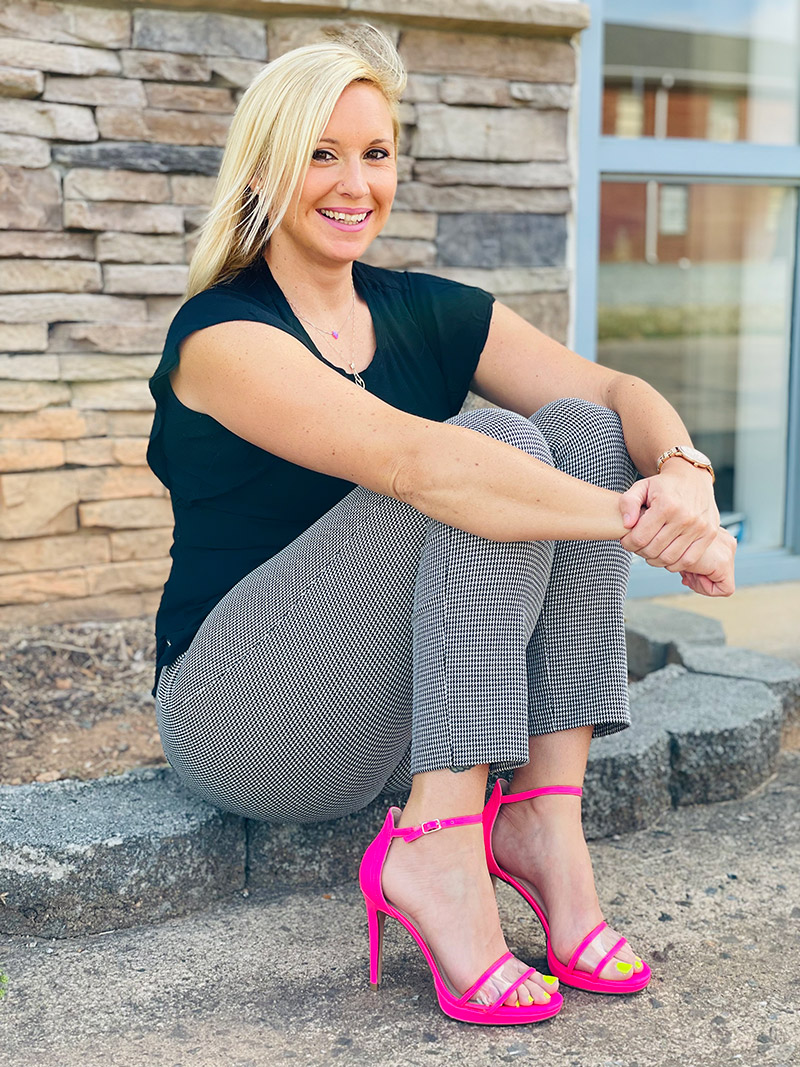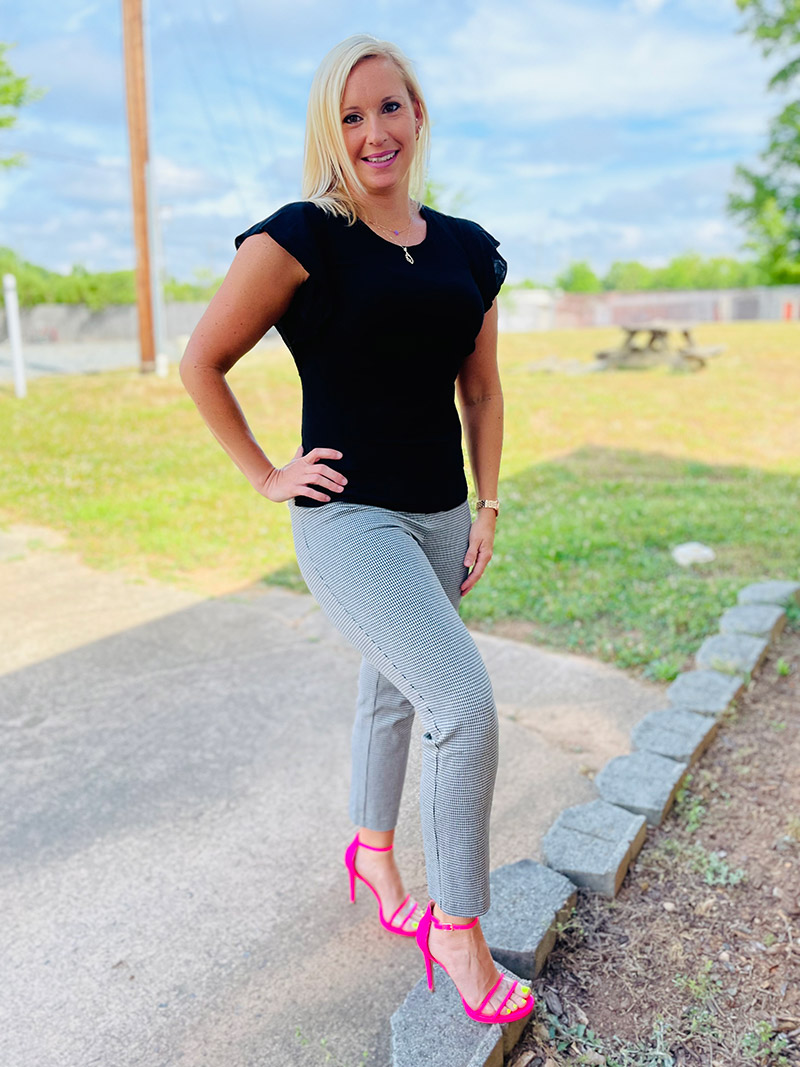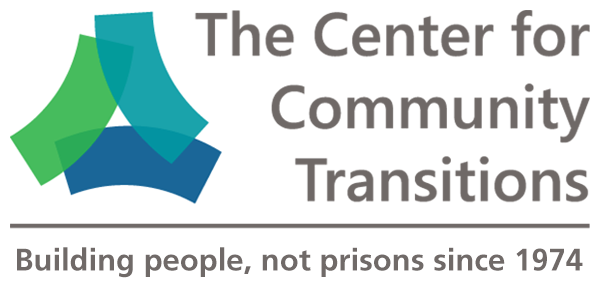Pretty (and confident) in Pink: First shoe purchase gives Center for Women resident a self-image boost

For most of us, shopping for shoes is a mundane activity. We walk into a store, browse the aisles for a few pairs we like, try them on and buy them. But for 34-year-old Erica, a recent visit to Rack Room Shoes was a milestone experience: It was her first time choosing a pair of shoes she wanted (hot pink stilettos!) and paying for them herself.
“It felt very freeing and was the first time I ever felt independent in my life. I always got the shoes somebody else wanted me to have,” said Erica, who was 22 years old when she entered prison in 2009. “Even growing up, I was never able to pick out a pair of shoes that I wanted. My stepdad was very controlling of my mother, so my mother was scared to buy certain things.”
When she was 14 years old, Erica met the man who later became the father of her son. “He was the love of my life and my first everything. He used to be a decent guy but then became an abusive control freak who picked out my clothes, picked out my shoes, and tracked where I went. I felt like I was a prisoner even before I was in prison.”
Opportunities for a second chance
Erica now resides at the Center for Women, a 30-bed residential transition unit located on the Center for Community Transitions (CCT) campus, where eligible women complete the final 12–36 months of their prison sentences. CCT is the only nonprofit the North Carolina Department of Public Safety contracts to operate such a program.
As residents start the reentry process and adjust to returning to the community, they get assistance with employment readiness, family reunification, financial literacy, education, and support and counseling services. They also participate in enrichment activities such as religious services, AA/NA meetings, book clubs, movie and games night, and arts and crafts. For shopping trips, women use the money they earned through a work-release program, a requirement for all Center for Women residents.
Pretty (and confident) in pink
 Life in prison, Erica said, was dull, drab and depressing, with no bright colors.
Life in prison, Erica said, was dull, drab and depressing, with no bright colors.
“When I arrived at the women’s facility in September 2020, it was the first time in 12 years that I’ve been able to express myself and be vibrant,” she said. “I watched (Program Director) Delilah Montalvo and the other staff come in with this boss attitude. They’re just so confident with their heels on and walking with their heads up. I always tell them, ‘I want to be like you when I grow up.’”
So when the staff scheduled a shoe shopping outing for residents, Erica knew just what she wanted: brightly colored heels that gave her a sense of self-assuredness.
“I’ve always loved the color pink and I’ve never owned a pair of heels, so I figured that I might as well go big or go home. And I can’t go home yet, so I might as well go big!” she said. “I’m still learning how to walk in them, but I practice walking up and down the hallways.”
Now that it’s been more than a decade since she was in an abusive and controlling environment, Erica said she recognizes all the things she could have done differently.
“I know now that my mom is my best friend and I have her to call on,” she said. “It’s like scales were taken off my eyes and I can see clearly for the first time. I’m not quite confident yet, but I found a pair of shoes that one day my confidence will match.”
The Center for Community Transitions is a nonprofit organization founded in 1974 at First Presbyterian Church in Charlotte, NC, to help strengthen the community and reduce recidivism. A thought leader on re-imagining justice, CCT provides people with criminal records and their families tools and resources to rebuild their lives. The organization centers on successful reentry through employment and transition services, financial stability, incarceration alternatives, restoring and supporting family bonds, and identifying healthy and productive ways of living.
CCT does this work through its Second Chance Employers, LifeWorks!, Families Doing Time and The Center for Women programs. You can help give a second chance to women like Erica, who are working to rebuild their lives after incarceration. Visit CCT’s Support page to learn about donations, advocacy, community partnerships and volunteer opportunities.

